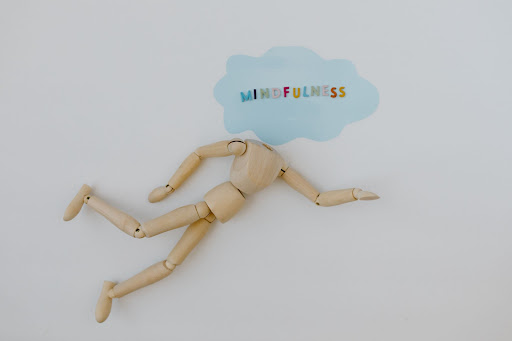While we tell each other, “Just accept, let it go, and move on,” it’s never as easy as we say it. While we know we must let go to grow, we hold on to past hurts since it’s our innate nature to resist change.
And yet, you know you must let go to find happiness in your life.
So instead of stressing more about how you can let go, dive into this piece with me to discover practical strategies to learn acceptance and letting go.
Let’s dive right into it.
1. Understand the Importance of Letting Go
Understanding the importance of a change is what helps you actually pursue it.

Here are reasons why accepting and letting go is important:
- It’s a waste of time and effort to worry about the past since the past has already happened and no amount of thinking can change it
- When you hold on to the past, you let self-limiting beliefs strap you down with the hurts
- When you let go, you create space for a new thing to happen
- You are not your past so holding on to it destroys your real identity
- Letting go is an action that helps you change for the better
- Letting go is the only way you can move on to the next step of your life
As you can see, nothing good comes from not accepting and letting go. Meditate on the above reasons and you’ll find yourself accepting what happened more and you’ll start letting go.
Related: Ways To Let Go And Trust The Universe
2. Allow the Emotions to Flow
Emotions help us deal with what’s happening in our lives.
That’s why it’s vital to let emotions flow whenever they have to. Let yourself feel the anger, sadness, disappointment and whatever unpleasant feeling you’re feeling because of hurt.
If you accept the emotions and let them flow, they’ll run their course and help you get back to your life once the grieving is done. But if you suppress those emotions, you’ll end up in depression as the bottled-up emotions perpetuate negative feelings.
So let them flow.
3. Choose When to Let Go With an Affirmation
You have to choose to accept and let go for it to actually happen.
So choose a timeline to grieve and feel the emotions while you learn about your experience. At the end of that timeline, the next step would be letting go. But you must use an affirmation that trains your brain to take this step.
You can tell yourself, “I accept X happened and now I must move on,” or “I have chosen to accept and let go of X situation and would focus on doing Y to move forward with my life.”
Make up something about accepting and letting go that you desire to be your belief and practice it daily.
4. Practice Self Compassion
Nothing hinders acceptance and letting go than negative self-talk. The first thing we humans commonly do when experiencing pain is blame and criticize ourselves. But it worsens the situation more than bettering it.
That’s why it’s vital to be kind to yourself if you’re going to see yourself through this situation. As you would treat a friend if they were in the same situation or encourage a client if you were a life coach, do the same for yourself.
Related: Best Ways To Embrace My Imperfections
5. Talk About It
It’s tempting to close off from the world when we’re feeling pain. But it’s never the best way to deal with the hurt.
When you talk out feelings:
- You stay in touch with what’s happening in you and around you which helps you understand improvements to make on your part.
- You remove bottled-up feelings which could have led to stronger, more destructive negative feelings.
- You remove weight from your heart and mind which frees you up for more constructive thinking and feeling
- You become more motivated to move forward to positive change
- You make room for getting solutions on how to deal with the painful experiences you’ve had
- You become the owner of your feelings instead of them owning you in overwhelm
- It helps you connect with others authentically
- You become more emotionally intelligent
All these benefits are way more than enough to help you get out of your head and talk.
Talking about your hurt can be to:
- Family members: Seek a caring family member who can listen to your struggles
- A friend: You have friends you know you can talk to whether they’ll help you solve the problem or just give you a listening ear
- Counseling professional: If the pain has gone on for far too long and simply talking it out hasn’t helped, it’s best to seek professional advice from a life coach, therapist, or other counselor.
- The one who hurt you: Whether a partner, ex, friend, or any other person who hurt you, you can express your feelings to them that they may understand you and hopefully work out the conflict with you to mend your relationship with others
- Random people: Before you frown on this idea, read on. You can anonymously use social media sites to express your struggles. Many do it on Quora, Facebook plus other sites and even get the help they need.
Related: The Observer Self Exercise – Proven Strategies To Detach From Your Thoughts
6. Accept the Possibility of Getting No Apology
The hard truth of getting hurt is that the one who hurt you might not say they’re sorry. The same way you express apologies isn’t automatically reciprocated by others.
You have to accept this reality if you want to move forward. You must decide that; whether there’s an apology or not, you shall move on.
To learn more about accepting situations even when they aren’t fair according to sensible expectations, discover Effective Ways How To Let Go Of Expectations in your life.
7. Forgive With Understanding
We forgive not because we no longer care that someone harmed us or that their actions are justifiable but because it’s beneficial for us to forgive.
Even when you lack empathy and compassion for someone who hurt you, you can forgive them as long as you come to understand them.
People don’t act the way they do for no reason so knowing the reason behind their actions or at least having an idea, would help you move forward. This way, you forgive the person without justifying their behavior.
You can seek to understand why someone did what they did through psychological explanations you can search online. This helps you understand their point of view and let go of the dreams and expectations you had of them.
And that’s how you forgive even the worst enemy.
Related: Practical Tips On Letting Go Of Guilt & Forgive Yourself
8. Surround Yourself With Support
You are human and are therefore unable to effectively handle hurts alone. You need to begin allowing yourself to lean on the shoulders of your loved ones.

Their presence not only consoles you through the greatest storms but also reminds you of the good things to be grateful for in your life. And that positivity fuels your healing by a great deal.
9. Use Gratitude to Deal With Painful Thoughts
According to neuroscience on the effects of gratitude on the brain, being grateful helps us deal with pain by reducing stress in all its forms.
Therefore, if you want to accept and let go of the hard reality that has caused you pain, you need to practice the gratitude attitude daily.
Set a time where you’d be seeking out things to be thankful for in your life and actually acknowledge them. It does more for you than you’ll even understand.
Related: 101+ Things To Let Go Of To Find Happiness
10. Engage in Mindfulness
When struggling to let go, you live in the past which hinders your power to accept and let go of it. Even worse, it promotes anxiety about the future which prevents your focus on the most important thing: the present.

However, preferably when you’re in your gratitude exercise session, you need to also engage in mindfulness exercises where you remind yourself of the present. You also need to remind yourself to be mindful of the present along the day with affirmations.
This takes practice to do it more naturally.
11. Practice Self Care
When hurting, it’s best to engage fully in self-care. Practicing self-care in this sense means things like:
- Setting boundaries to help organize your life
- Listening first to your needs
- Doing fun activities that bring comfort and joy every day
- Taking a break from some activities
- Asking for help
- Focusing on a healthy diet
These personal-care strategies empower you to make changes that help you take charge of your life.
Related: Best Boosting Self Esteem Questions
12. Physically Distance Yourself
While emotionally distancing yourself with the above strategies is the best way to accept things and let them go, distancing yourself physically can help you go through the process more efficiently.
If the person or situation influencing your pain can be avoided physically, take that step. With some space to breathe and process things, you can finally get peace of mind by letting go of the past that no longer serves you.
13. Get Professional Help
Sometimes all our self-intervention efforts aren’t enough. Sometimes the damage is so deep only a professional can help deconstruct the problem. Other times we want to deal with our problems as efficiently as possible and there are resources to enable that.
In such moments, it’s best to get a professional to help with the problem.
Life coaches, relationship coaches, therapists, and other kinds of counselors can help you understand the painful experience and cope with it more constructively. Personal sessions with the right counselor can prove to be the fastest way of acceptance plus letting go.
Related: Life Coaching Services – Qualities To Look For In A Life Coach
To Accept and Let Go – A Deeper Understanding With Questions
If you want to understand these concepts more, continue with me as I answer your most burning questions on the topic.
Is acceptance the same as letting go? What is the difference between acceptance and letting go?
Acceptance isn’t the same as letting go but it’s closely related. Acceptance is the process of acknowledging the reality of a situation, viewing it as it is. Letting go is removing our hold on control and expectations while moving forward in acceptance of what happened.
Related: Effective Ways To Move On Without Closure
How do you accept yourself and let go? Forgiveness acceptance letting go
You accept yourself by understanding that you’re imperfect and can make mistakes like other human beings. Feel the feelings and choose to accept who you are plus what you did, forgive your old self and choose to live your best self.
What is the importance of letting go and accepting loss?
When you accept things as they are by letting go of your expectations, you experience less stress, fear, and frustration; eliminate negative trauma effects, create better connections, and become equipped to live your best life.
How to let someone go emotionally – letting go and moving on
- Understand the Importance of Letting Go
- Allow the Emotions to Flow
- Choose When to Let Go With Affirmation
- Practice Self Compassion
- Talk About It
- Accept the Possibility of Getting No Apology
- Forgive With Understanding
- Surround Yourself With Support
- Use Gratitude to Deal With Painful Thoughts
- Engage in Mindfulness,
- Practice Self Care
- Physically Distance Yourself
- Get Professional Help
Related: Expert Insights – How To Let Go Of Shame
Why do I have a hard time letting go of things?
You have a hard time letting things go because you shut feelings out by suppressing them instead of going through the feelings to get lessons from your experiences and grow. Check out these strategies for acceptance plus letting go that you may develop emotional intelligence skills to deal with painful experiences in your life.
Accepting and Letting Go
We’ve discussed much about acceptance and letting go that I trust you are equipped enough to deal with your hurt now and even assist others in your life do the same.
What strategy for accepting and letting go of hurt resonates with you most? Share comments below and help your friends with this article to help them deal with their pain as well.
Thanks for reading!
